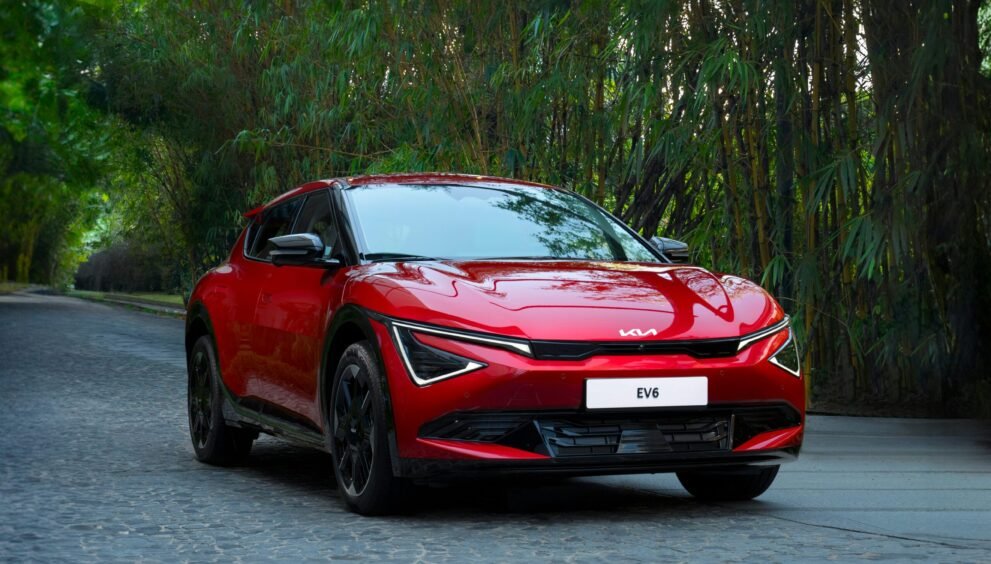Why Shouldn’t We Go Fully Electric Cars? Key Reasons Explained

Why Shouldn’t We Go Fully Electric Cars? As you consider your next car purchase, it’s essential to understand the limitations and challenges of electric vehicles. The rising popularity of EVs has sparked a debate about their viability as a replacement for traditional gasoline-powered cars.

While electric vehicles offer several benefits, there are also significant challenges that need to be addressed. You should be aware of these challenges to make an informed decision about your next car purchase.
Key Takeaways
- Electric vehicles have limitations and challenges.
- The viability of EVs as a replacement for traditional cars is debated.
- Understanding the challenges of EVs is crucial for informed decision-making.
- EVs offer several benefits, but also significant challenges.
- Awareness of EV challenges is essential for car buyers.
Current Challenges of Electric Vehicles
Despite their benefits, electric vehicles face significant hurdles that could impact their adoption. As the world shifts towards more sustainable transportation options, understanding these challenges is crucial.

Limited Charging Infrastructure in the US
The United States is still in the process of developing a comprehensive EV charging infrastructure. Unlike traditional gas stations, charging points are not yet ubiquitous, making long trips challenging for EV owners.
Battery Life and Replacement Costs
The cost and lifespan of EV batteries are significant concerns. While battery technology has improved, replacement costs can still be high, affecting the overall cost-effectiveness of electric vehicles.
Range Anxiety and Travel Limitations
Range anxiety, or the fear of running out of charge while driving, remains a critical issue for many potential buyers. This anxiety limits travel plans and is a significant barrier to the widespread adoption of electric vehicles.
| Challenge | Description | Impact |
|---|---|---|
| Limited Charging Infrastructure | Insufficient charging points across the US | Makes long trips challenging |
| Battery Life and Replacement Costs | High cost of replacing EV batteries | Affects overall cost-effectiveness |
| Range Anxiety | Fear of running out of charge | Limits travel plans and adoption |
Why Shouldn’t We Go Fully Electric Cars?
While electric cars offer several benefits, there are valid reasons to question whether a complete transition to electric vehicles is advisable. As you weigh the pros and cons, it’s essential to consider the broader implications of a fully electric future.
Environmental Impact of Battery Production
The production of electric vehicle batteries involves significant environmental costs, including mining and processing materials like lithium and cobalt. This process can lead to environmental degradation and health risks for workers. For instance, lithium mining has been linked to water pollution and soil contamination.

Electricity Source and Grid Capacity Concerns
The overall environmental benefit of electric vehicles depends on the source of the electricity used to charge them. If the electricity comes from coal or gas, the carbon footprint of EVs increases significantly. Moreover, widespread adoption of EVs could strain the grid, particularly during peak charging times. Utilities and grid operators must invest in infrastructure to support the increased demand.
Economic Considerations for Average Consumers
The economic viability of electric vehicles for the average consumer is another concern. While EVs can offer long-term savings on fuel and maintenance, the higher upfront costs can be a barrier. The average price of EVs remains higher than that of hybrid or gasoline-powered vehicles, making them less accessible to many consumers. A comparison of costs reveals that:
- Average EV price: $50,000+
- Average hybrid vehicle price: $30,000-$40,000
- Average gasoline-powered vehicle price: $20,000-$30,000
As you consider the future of transportation, it’s clear that while electric vehicles have their advantages, a balanced approach that includes hybrid options might be more practical and environmentally friendly.
Conclusion: Considering Hybrid Alternatives
As you weigh the pros and cons of electric vehicles, it’s worth considering hybrid alternatives. Hybrid cars combine the benefits of electric motors with the reliability of gasoline engines, offering better fuel efficiency without the range anxiety associated with EVs. When evaluating the future of electric transportation, the role of hybrid cars vs electric cars becomes significant. You might find that a hybrid vehicle is a more practical solution for your needs.
The automotive industry is likely to continue evolving, with a mix of electric, hybrid, and other alternative fuel vehicles. Understanding the challenges and benefits of each can help you make a more informed decision that contributes to a more sustainable transportation future. So, why shouldn’t we go fully electric cars? The answer lies in considering a balanced approach that includes hybrid options, ultimately leading to a more flexible and environmentally friendly transportation system.
FAQ
What are the main challenges facing electric vehicles?
Electric vehicles face several challenges, including limited charging infrastructure, concerns about battery life and replacement costs, and range anxiety, which can limit travel plans.
How does the environmental impact of electric vehicles compare to traditional gasoline-powered cars?
While electric vehicles produce zero emissions during operation, the production of their batteries involves mining and processing materials, which can have significant environmental costs. The overall environmental benefit also depends on the source of the electricity used to charge them.
Are hybrid cars a more practical alternative to fully electric vehicles?
Hybrid vehicles combine the benefits of electric motors with the reliability of gasoline engines, offering better fuel efficiency without the range anxiety associated with electric vehicles, making them a more practical solution for many.
What is range anxiety in electric cars, and how does it affect buyers?
Range anxiety refers to the fear of running out of charge while driving. It is a significant concern for potential electric vehicle buyers, as it can limit their travel plans and create uncertainty about their ability to complete a journey.
How does the cost of electric vehicles compare to hybrid or gasoline-powered vehicles?
Electric vehicles often have higher upfront costs compared to hybrid or gasoline-powered vehicles, which can be a significant consideration for the average consumer.
What is the current state of electric vehicle charging infrastructure in the US?
The charging infrastructure for electric vehicles is still developing and is not yet as widespread as gas stations, making long trips challenging.
How long do electric vehicle batteries last, and what are the replacement costs?
The lifespan of electric vehicle batteries varies, but they generally last several years. Replacement costs can be high, although they are decreasing over time as technology improves.






















































































































































































































































































































